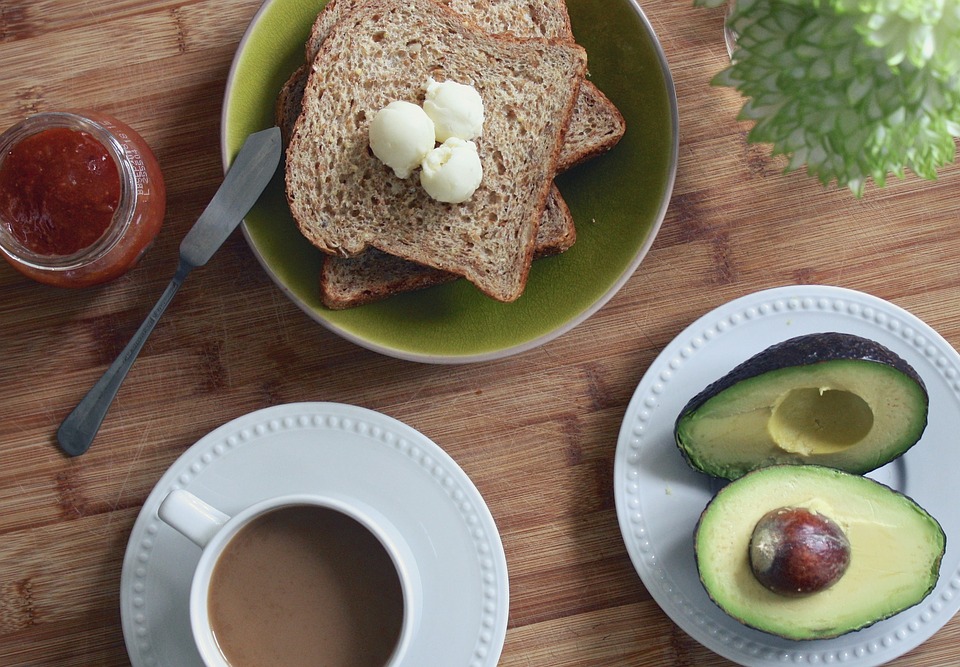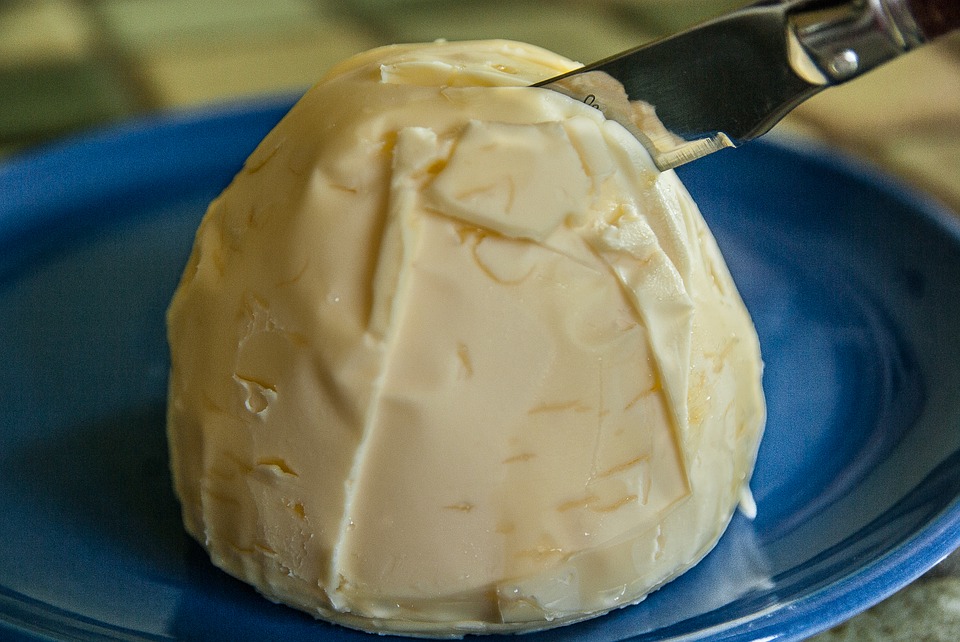As a dog owner, I've been there. Those big, pleading eyes staring up at me, begging for a taste of my toast slathered in butter. It's a scene that plays out in countless households, and the question lingers: is butter safe for dogs? The short answer? It's not as simple as a yes or no. Butter, while not inherently toxic, can be detrimental if consumed in excess. It's more like a "maybe, but with caution" situation.
Part 1: The Butter Debate: A Balancing Act

Butter is a common staple in human diets, but when it comes to our canine companions, we need to tread carefully. Butter, primarily composed of fat, contains essential fatty acids like linoleic acid and conjugated linoleic acid (CLA). These fatty acids, while beneficial in moderation, can wreak havoc on a dog's digestive system if consumed in large amounts.
1.1. Butter's Nutritional Breakdown: More Than Meets the Eye
While butter boasts some essential fatty acids, its high fat content can be a double-edged sword for dogs. Imagine your furry friend suddenly indulging in a whole stick of butter—not a pretty sight! It's like offering your dog a big, greasy burger every day. Not exactly a recipe for a healthy lifestyle, is it?
1.2. Butter's Dairy Side Effects: A Case for Caution
Now, let's talk about the dairy element. Many dogs, especially those with lactose intolerance, can experience tummy troubles after consuming dairy products. Think of it like your own reaction to a massive scoop of ice cream—bloating, diarrhoea, gas—not exactly a pleasant experience. So, while butter might look tempting to your dog, it can lead to some unpleasant side effects.
Part 2: A Bite Here, A Bite There: Butter as a Treat

Don't despair, butter enthusiasts! A small sliver of butter, used sparingly as a treat, can be alright. Think of it as a special occasion treat—like a birthday cake for your furry friend. Just remember, moderation is key.
2.1. The Treat Rule: Moderation is Key
My own dog, Max, a mischievous terrier, has a weakness for peanut butter. But, I always make sure to give him only a small amount, and I opt for natural, sugar-free peanut butter. The same goes for butter. If you decide to share a little bit of butter with your dog, do it as a special treat, and only a small amount.
2.2. Beyond Butter: Exploring Healthy Dog Treats
Don't limit yourself to butter! There's a whole world of delicious and healthy treats waiting to be discovered. Homemade treats are a fantastic option. My go-to recipe for Max is peanut butter and banana biscuits. They're a hit with him, and they're made with ingredients that are good for him. Of course, you can also find a wide variety of healthy commercial treats that are specifically formulated for dogs.
Part 3: The Real Butter Bomb: Unsalted and Unsweetened

If you do decide to give your dog a tiny taste of butter, make sure it's unsalted and unsweetened. Why? Because salt and sugar can be harmful to dogs.
3.1. Salt: A No-No for Canine Companions
Salt, a common ingredient in many processed foods, can be toxic to dogs in excess. It can lead to dehydration, vomiting, diarrhoea, and even kidney problems. So, always choose unsalted butter to avoid any potential complications.
3.2. Sugar: A Sweet Treat with a Bitter Side
Sugar, like salt, is a no-no for dogs. While a tiny bit of sugar won't cause major harm, too much can lead to obesity, dental problems, and even diabetes. So, stick to unsweetened butter, and even then, only offer it as a rare treat.
Part 4: The Butter-Related Dangers: Potential Issues
Butter, while not inherently toxic, can trigger a range of health problems if consumed in large quantities or by dogs with specific health conditions.
4.1. Pancreatitis: A Butter-Induced Digestive Crisis
A high-fat diet can lead to pancreatitis, a painful inflammation of the pancreas. This is a serious condition that requires immediate veterinary attention. If you notice your dog exhibiting symptoms like abdominal pain, vomiting, diarrhoea, or lethargy, it's crucial to seek veterinary care right away.
4.2. Obesity: A Weighty Matter
Butter is packed with calories. Just like humans, dogs can gain weight if they consume too many calories. Obesity can lead to a host of health problems, including joint problems, diabetes, and heart disease. Keep those butter treats minimal to maintain a healthy weight for your furry friend.
4.3. Allergies: Butter Sensitivity
While rare, some dogs can develop allergies to dairy products, including butter. The symptoms of a dairy allergy can include skin rashes, itching, diarrhoea, vomiting, and digestive upset. If you notice any of these symptoms after giving your dog butter, discontinue its use and consult your veterinarian. They can help determine if your dog has a dairy allergy and recommend an appropriate course of action.
Part 5: A Dog's Digestive System: Butter's Impact
Butter, with its high fat content, can disrupt a dog's delicate digestive system, leading to discomfort and potential complications.
5.1. Bloating and Gas: The Uncomfortable Realities
Butter can cause bloating and gas in dogs due to its high fat content. This is especially true for dogs who aren't accustomed to consuming fatty foods regularly. Bloating can be a serious condition, potentially leading to life-threatening situations. If you notice your dog exhibiting signs of bloating, like a distended abdomen, difficulty breathing, or restlessness, seek veterinary attention immediately.
5.2. Diarrhoea: A Digestive Upset
Butter can also trigger diarrhoea, especially in dogs with sensitive stomachs or lactose intolerance. This occurs because the dog's body struggles to digest the fats and sugars present in butter. If your dog experiences diarrhoea after consuming butter, discontinue its use and consult your veterinarian.
Part 6: The Doggy Delights: Alternative Treats
Since butter can pose potential health risks, it's crucial to explore healthier, dog-friendly treats.
6.1. Homemade Treats: A Delicious and Healthy Option
Get creative in the kitchen and whip up a batch of homemade treats for your dog. The internet is brimming with dog-friendly recipes using ingredients like peanut butter, bananas, sweet potatoes, and carrots. These treats are not only delicious but also a great way to bond with your furry friend. Plus, you can control the ingredients, ensuring they're free of harmful additives and preservatives.
6.2. Commercial Treats: A Variety to Choose From
The market offers a wide selection of commercial dog treats. Look for treats that are low in fat, sugar, and salt, and made with natural ingredients. Always read the label carefully to choose treats that are appropriate for your dog's size, age, and dietary needs.
Part 7: When in Doubt, Consult the Vet
If you're unsure about whether or not butter is safe for your dog, always err on the side of caution and consult your veterinarian. They're your dog's health advocate and can provide personalized advice based on your dog's individual needs and health history.
7.1. Veterinary Advice: The Best Resource
Your veterinarian can tell you whether butter is appropriate for your dog and, if so, the appropriate amount. They can also address any concerns you have about your dog's diet and recommend healthy alternatives.
Part 8: The Final Verdict: Butter, a Treat with Caution
In conclusion, butter, while not toxic, can be harmful to dogs if consumed in excess. It's best to avoid butter as a regular dietary staple and only offer it as a very occasional treat. Choose healthier, dog-friendly treats and always consult your veterinarian for guidance on your dog's diet. After all, your dog's health and well-being are paramount.
FAQs
1. Can all dogs eat butter?
No, not all dogs can safely eat butter. Some dogs are more sensitive to dairy products than others. If your dog has a history of digestive issues, it's best to avoid giving them butter. Always consult your veterinarian for tailored advice based on your dog's individual needs.
2. What are the signs of butter intolerance in dogs?
Signs of butter intolerance in dogs can include bloating, gas, diarrhoea, vomiting, and skin rashes. If you notice any of these symptoms after giving your dog butter, discontinue its use and consult your veterinarian.
3. How much butter is safe for a dog to eat?
A tiny sliver of unsalted, unsweetened butter, as an occasional treat, is usually acceptable for most dogs. However, it's best to err on the side of caution and avoid giving your dog butter regularly. Consult your veterinarian for specific guidelines based on your dog's size, breed, and health condition.
4. What are some healthy alternatives to butter for dogs?
Instead of butter, consider healthier, dog-friendly treats like homemade peanut butter biscuits, sweet potato snacks, or commercially available treats that are low in fat, sugar, and salt.
5. What should I do if my dog eats a large amount of butter?
If your dog consumes a large amount of butter, monitor them closely for signs of digestive upset. Watch for vomiting, diarrhoea, bloating, and gas. If you notice any of these symptoms, contact your veterinarian immediately.
Everyone is watching
-

Can Dogs Eat Bananas? A Guide to Safe Treats
DOGS & PUPPIESThis comprehensive guide will delve into the world of canine nutrition, focusing on the popular question: can ...
-

Can Dogs Eat Oranges? (Is It Safe or Toxic?)
DOGS & PUPPIESThis article delves into the question of whether dogs can safely consume oranges. We'll explore the nutrition...
-

Can Dogs Eat Grapes? The Shocking Truth About This Fruit
DOGS & PUPPIESThis article delves into the controversial topic of grapes and dogs, exploring the potential dangers associate...
-

Why Do Dogs Eat Poop? Understanding Coprophagia in Dogs
DOGS & PUPPIESThis article delves into the perplexing phenomenon of coprophagia, the act of eating faeces, in dogs. We explo...
-

Can Dogs Eat Shrimp? A Guide to Safety and Risks
DOGS & PUPPIESThis comprehensive guide dives into the world of shrimp and dogs, exploring the potential benefits and risks a...
